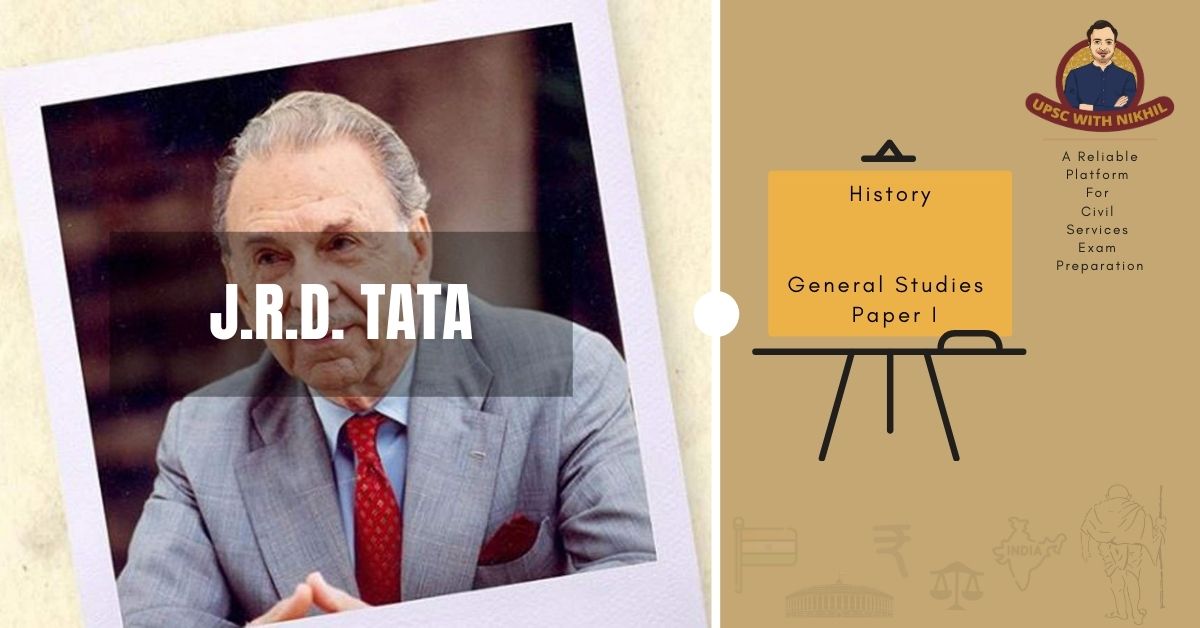J.r.d. Tata
Jehangir Ratanji Dadabhoy Tata (born July 29, 1904 in Paris, France—died November 29, 1993 in Geneva, Switzerland) was an Indian businessman and aviation pioneer who founded India's first airline and led the Tata Group, India's largest industrial conglomerate.
Tata was born into one of India's most prosperous families, but his mother was French, and he spent much of his childhood there. As a result, his first language was French. He first encountered aviation pioneer Louis Blériot during a summer holiday, and the experience piqued his interest in planes, which developed into a lifelong passion. Tata spent a year in the French army after studying in France, Japan, and England. He had intended to study engineering at Cambridge University, but was forced to return to India in 1925 to take up his place in the Tata family company. The Tata Company, founded by Tata's great-grandfather in 1868, was one of India's largest business conglomerates.
THE AIR INDIA STORY
“My first important memories from the point of view of a growing boy, blessed with a reasonably observant and inquisitive mind, were about cars and aeroplanes,” Tata said in his biography Beyond The Last Blue Mountain, written by R.M. Lala.
Tata did become a pilot at some stage, and he was a pioneer in India's aviation industry. He was one of the first few Indians to obtain a commercial pilot's licence in 1929. Soon after, he proposed an airmail service linking Bombay and Ahmedabad, as well as Karachi. There was a Tata Airmail Service in 1932, before Air India and Tata Airlines took to the skies.
At the age of 34, he became chairman of the Tata Group and renamed Tata Airmail Service to Tata Airlines, India's first domestic carrier. Tata Airlines was nationalised and renamed Air India in 1953, much to his dismay, but his passion remained unbounded.
HIS VIEWS ON COUNTRY’S GROWTH
“Advancing the country's science and economic capacities” was what Tata meant by national interest. In 1944, he founded the J.R.D. Tata Trust and sold his Bombay apartment to fund the J.R.D. and Thelma Tata Trust, which works to help India's underprivileged women.
“Advancing the country's science and economic capacities” was what Tata meant by national interest. In 1944, he founded the J.R.D. Tata Trust and sold his Bombay apartment to fund the J.R.D. and Thelma Tata Trust, which works to help India's underprivileged women.
Tata, who had previously disagreed with Nehru, believed that India's huge population was a weakness. He promoted the importance of family planning and assisted in the establishment of the International Institute of Population Studies. For his contributions, he won the United Nations Population Award in 1992.

In 1944, Tata and other prominent Indian industrialists initiated the Bombay Scheme, which became known as ‘A Plan of Economic Growth for India’ (The Bombay Plan). This programme, worth Rs 10,000 crore, was one of the first introduced by capitalists to raise the country's per capita income.
Tata quickly realised the value of a human resource department in every business. In his businesses, he instituted eight-hour work days, free medical insurance, and worker provident funds, all of which are now required by law.
“If we had 50,000 robots, we would certainly have a special staff or a department to look after them... but when we employed 30,000 human beings, each with his own mind, we seem to have concluded that they would look after themselves, and that there was no need for a separate organisation to deal with the human issues involved,” he said often.
In his lifetime, he wrote over 40,000 letters in which he communicated directly with his fans and well-wishers. In reality, when he learned that he was being considered for the Bharat Ratna by the Indian government, he exclaimed, "Why me?" I'm not deserving of it. The Bharat Ratna is generally conferred upon the deceased or upon politicians. I am not willing to comply with the government on the former, and I am not willing to comply with the government on the latter.”J.R.D. Tata died of a fatal kidney infection in 1993. He was buried in the family mausoleum at the Pere Lachaise Cemetery in Paris, as he had wished. He had earned the Bharat Ratna the preceding year.


